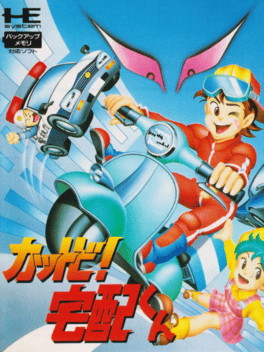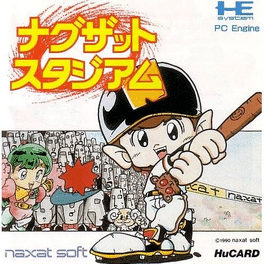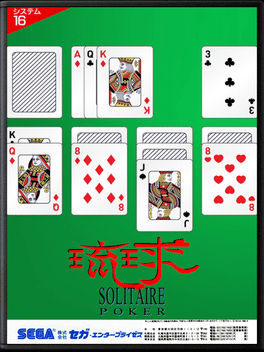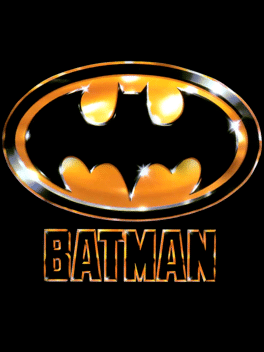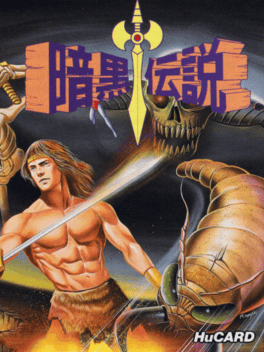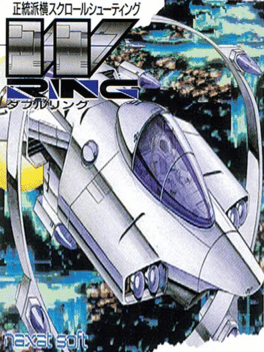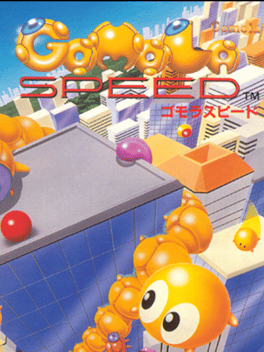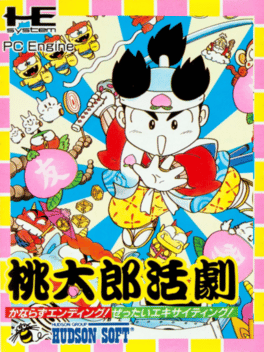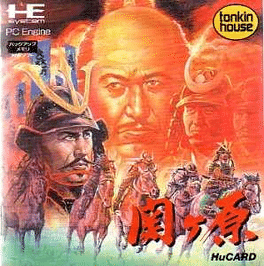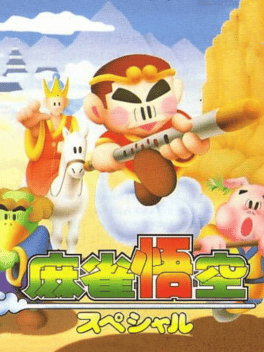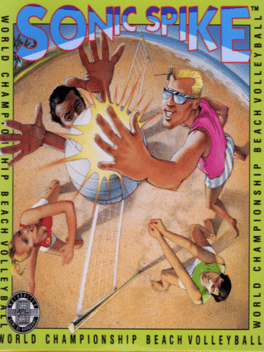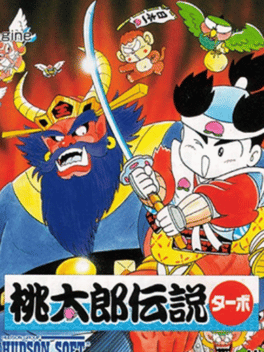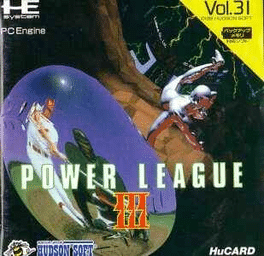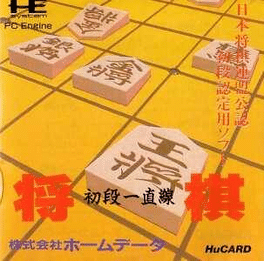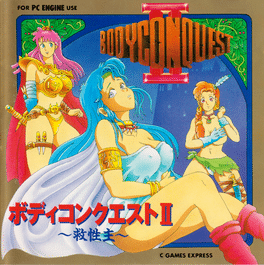New Turbografx 16 Pc Engine Games - Page 7
-
Kattobi! Takuhai Kun
1990
Kattobi! Takuhai Kun
1990
A top-down driving game where the player must deliver various packages around town, upgrading their moped as they complete jobs. The game has a subversive sense of humour. Kattobi! Takuhai-kun ("Fury! Delivery Boy") is a top-down action/driving game from Advance Communications Company and Tonkin House. The player is a delivery boy who must make a series of increasingly surreal deliveries across town, occasionally leaving the country and getting into trouble with drug trafficking. As the player complete jobs, they can use their earnings to buy better two-wheeled delivery vehicles, upgrading from a pedal bike to a moped to a state-of-the-art motorcycle. Destroying their vehicle (by losing a life) drops them back down to the regular pedal bike. The game was released exclusively in Japan on the PC Engine. It is perhaps best known to western audiences for its appearance on an episode of the Japanese video game TV show GameCenter CX. -
Naxat Stadium
1990
-
Ryu Kyu
1990
-
Rabio Lepus Special
1990
Rabio Lepus Special
1990
Rabio Lepus Special is a horizontal shoot' em up, adaptation of the 1987 arcade game Rabio Lepus , known as Rabbit Punch in North America. This port makes numerous changes from the 1987 arcade release, many of which aim to rebalance the game for a home console release. The first eight stages have been condensed into two stages, resulting in as half as many stages as the arcade game, various enemies and bosses were rearranged, and a few bosses have different attack patterns. -
Batman
1990
Batman
1990
Batman is an Action game, developed and published by SunSoft, which was released in Japan in 1990. -
Ankoku Densetsu
1990
Ankoku Densetsu
1990
Ankoku Densetsu ('Dark Legend') is widely considered to be the follow-up to the PC Engine classic Makyo Densetsu (1988) ('The Legendary Axe'). -
After Burner II
1990
-
W Ring: The Double Rings
1990
A Japanese PC Engine exclusive horizontal shoot 'em up. Power-ups appear as rings around the player's ship. -
Gomola Speed
1990
Gomola Speed
1990
A game of reflexes and strategy inspired by the classic Arcade game Snake. Gomola Speed is a top-down action game in which the player increases the size of their snake-like protagonist by collecting and uniting the various segments moving around the level. When long enough, the player character can wrap themselves around stunned enemies - the player can drop bombs that will momentarily stagger any enemy caught in the blast - and valuable food in order to acquire them. Once all the food has been collected, the exit opens somewhere in the level and the player can progress. Progressive stages have different gimmicks and solutions to completing them. The game was developed by UPL and released exclusively to the PC Engine in Japan. -
Momotaro Katsugeki
1990
Momotaro Katsugeki
1990
A platformer starring Hudson Soft's take on the famous Momotaro of Japanese folklore. The same concept would later be seen in the Momotaro Thunderbolt games for Game Boy. Momotaro Katsugeki ("Momotaro Action Movie") is a side-scrolling action-platformer from Hudson that uses their Momotaro character who is better known as the star of the Momotaro Dentetsu and Momotaro Densetsu series. It is a PC Engine exclusive and never saw international releases. Momotaro Katsugeki seems influenced by and plays similarly to Westone's Wonder Boy in Monster Land and the sequels that followed: the goal is to move across a set of 2D stages, and the player can talk to NPCs for hints and to purchase better equipment with the money they find. There is also a world map that links the various stages together. The concept of a 2D side-scrolling action game featuring Momotaro would be further explored by Hudson with the two Game Boy Momotaro Dengeki/Thunderbolt games. -
Sekigahara
1990
Sekigahara
1990
AKA: 関ヶ原. A turn-based strategy game based on the famous battle of Sekigahara. This battle decided the major Shogun and concluded the sengoku era. -
Mahjong Gokuu Special
1990
Mahjong Gokuu Special is a 4-player Mahjong game based on the story of Journey to the West. -
Legendary Axe II
1990
Legendary Axe II
1990
The Axe is back ... with twice the force and twice the fury of 1988's classic TurboGrafx-16 videogame. This time it's brother against brother, locked in deadly combat. Your older brother has summoned forces of unspeakable evil to take control of the kingdom. Treachery rules! Your only hope is the legendary royal sword. But will its power be enough to overcome the Cliffs of Chaos? The Skull Dungeon? And the treacherous Crypts of Slime? Only your courage, your fighting skill, and the Legendary Axe can answer that challenge! -
Hanii on the Road
1990
Hanii on the Road
1990
Hanii on the Road (aka Hany on the Road or Honey on the Road) is a side scrolling action game by Face. After Hanii's exploits in Hanii in the Sky, the little Haniwa clay doll is back on a new mission. This time around, our cute friend must free the world from all the demons and other evil creatures that escaped from the Gods' realm. But this time around he's not flying or shooting balls of energy - instead, he must run along a roadway divided into four lanes, each moving at different speeds. And things are just not as easy as it may sound - Hanii has to jump over various enemies and try not to fall into deep holes dug into the ground, without forgetting the occasional change in scrolling direction and the myriad of other exciting, and often lethal, effects. A time limit also urges him to hurry and to quickly reach the end of each stage. Every little helps, and tiny wood signs scattered around every road tell Hany how far the next exit is. Additionally, special items can be collected along the way, such as Blue jars -
Sonic Spike
1990
Sonic Spike
1990
The action sizzles in Sonic Spike, on the front line of the world's most brutal volleyball game. Blast the ball over the net -- bump, spike, dig, jump, and even quick-fake a return. Orbital lobs soar to the sun; earth-pounding spikes vibrate the ground. Score ... or eat sand! Select and create your own teams from 24 athletes pulled from six nations. Pit gals against guys in a battle of the sexes, or fight the competition of the century with Japan, Australia, Brazil, USA or USSR. -
Momotaro Densetsu Turbo
1990
A turn-based RPG featuring the famous Peach Boy of Japanese folklore, and the enhanced remake of the first Momotarou Densetsu game. It was released shortly before the game's official sequel, also for PC Engine. Momotarou Densetsu Turbo ("Peach Boy Legend Turbo") is the second game in the Momotarou Densetsu franchise, though is effectively a revamp of the first game released for the Famicom. The game displays Momotarou's origins as a baby born of a giant peach that a kindly couple found floating down a river, and covers how he met his animal companions and fought the Oni on their island. The game sets up the sequel, Momotarou Densetsu II, which was released exclusively for the PC Engine a few months later. -
Chozetsu Rinjin Berabo Man
1990
Chozetsu Rinjin Berabo Man is a platformer with underwater shoot 'em up stages, but the hero here doesn't just use a gun - instead, his whole body is elastic, so you'll find yourself taking out enemies with extending legs, arms and even neck! Along the way, you'll pick up items from destroyed enemies. With a boss at the end of each level, a hero's work is never done. -
Power League III
1990
Power League III
1990
Power League III is a Sports game, published by Hudson, which was released in Japan in 1990. -
Body Conquest II ~The Messiah~
1990
Long ago, God has created Eve from Adam's rib ... but the ground of men and women has proved constantly unstable. Eventually, Man became cursed by the witch of Topaz. Ever since the curse of impotence, the man lost confidence, and the women fall to frustration. One day, A baby boy was born in the castle town of Castle Tatsunda. It was the birth from a virgin conception. On his 15th birthday, the boy is asked by the king to defeat the curse, and become a savior.
